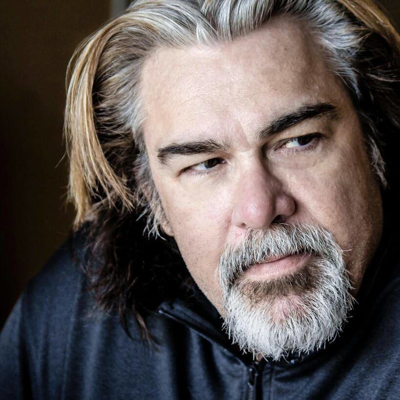Drug addiction is so widespread a problem that it's far easier to find people affected by it than those with no knowledge of, or connection to, anyone in its throes. But few have ever depicted their agony and subsequent recovery more vividly than vocalist, songwriting and keyboard ace Rusty Golden. His current CD Sober puts the issue at the centerpiece of a powerful, intense testimonial about both one man's fight, and that of everyone struggling to overcome this problem.
"I wanted to use my talent to speak about this issue, but also to share the deep spiritual experience that I got out of the group sessions when I was in rehab," Golden told the Scene recently. "When I played and sang these songs, I could really feel them, and tell people my battle, and the importance of having good people around you.
"That's what enabled me to make it — just like it took the words of good people around me to tell me the truth, to tell me that, 'Man, you need to get some help.' I didn't want to accept it at first, but it was real and it was the truth. Now I thank God that I went, and I hope this album can help others in the shape I was at one time."
Sober was released this past May. It was produced by Scott Baggett, and is available at the artist's website. Golden will be among the performers at Recovery Fest, a combination community festival and series of concerts held in Wauwatosa, Wisconsin, on Saturday.
The son of gospel and country star William Lee Golden, member of the Hall of Fame ensemble The Oak Ridge Boys, Rusty Golden began his own career when he was a teenager. At 13, he was playing drums and touring with Southern gospel legends the Rambos. But things totally changed for him in 1972, when he saw someone in another genre doing something completely different.
"I saw Elton John play piano, and immediately I knew that was something I wanted to do," Golden recalls. "Later I saw Jerry Lee Lewis — what a wildman! I taught myself piano and started to change what I was doing. I used some of my grandmother's poems as inspiration for writing songs.
"As far as my father and his impact on me, from a musical standpoint, I think I always had the music in me. But once he saw that this was something that I really wanted to do and was serious about it as a career, he did talk to me about the business side, making sure that I was dealing with reputable people and understanding about publishing and taking care of things on that end."
Golden soon began enjoying a degree of individual success. He was on a chart-topping Larry Gatlin LP in the late '70s, and started cutting his own tunes at 20. He later led the group The Boys Band, and earned a gold record for contributing to the Oak Ridge Boys LP Bobbie Sue. Subsequent attempts at pop/country stardom such as Golden Speer and a unit with his bother Chris called The Goldens yielded sporadic results. But he kept plugging away, working both as a solo act and in conjunction with songwriter Jeffrey Steele doing regional and nation concerts.
It was late in 2002 that Golden's personal life took a dicey turn. He had health problems, including a quadruple heart bypass. He returned to the music of his youth for a lengthy period that included penning the No. 1 gospel hit "John in the Jordan," and working with other Southern gospel acts. By 2010, he'd make another shift, producing Tre Michaels' debut LP and enjoying more successful compositions. Even as his writing career was flourishing, Golden was dealing with a growing addiction.
"I tried for over 36 years to do everything my way," Golden said. "It wasn't so much that I was out of control. But I had a real problem. I didn't want to believe that I couldn't deal with it. It took family members looking at me and saying you need to get help, of them later telling me they would rather not have me come around the way I was that finally convinced me to get help."
The musical rendering of this journey comprises the lyric grit and authority underpinning every number on Sober. Such tunes as "Change Is Good Do Me Good," "I'm Living Right Now," "Sober" and "A Better Way" speak to the wisdom and difficulty inherent in choosing sobriety over addiction. A spirited blend of secular and religious themes, the disc also features some of the city and area's finest musicians, among them saxophonist/flutist Jim Hoke, guitarist Pat Buchanan, bassist David Hood, and brother Chris on drums and percussion.
Golden reunites with Steele on the latter's compositions "Sober" and "Reason Why I'm Here." Al Anderson, whose guitar work is featured on "Right on Time," collaborated with Bob DiPiero on "Change is Gonna Do Me Good" and Sharon Vaughn on "Right on Time." There's also a fine cover of T. Graham Brown's "Wine Into Water" (co-written with Bruce Burch and Ted Hewitt) that concludes the album.
"You either are part of the solution or you remain an addict," Golden said. "Everybody out there either knows somebody, loves somebody or has been been somebody who's addicted. It's something that we should always remember whenever we're talking about addiction or dealing with it, that it is such a pervasive problem, and one where's there no easy solution to the problem."





